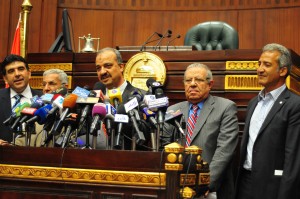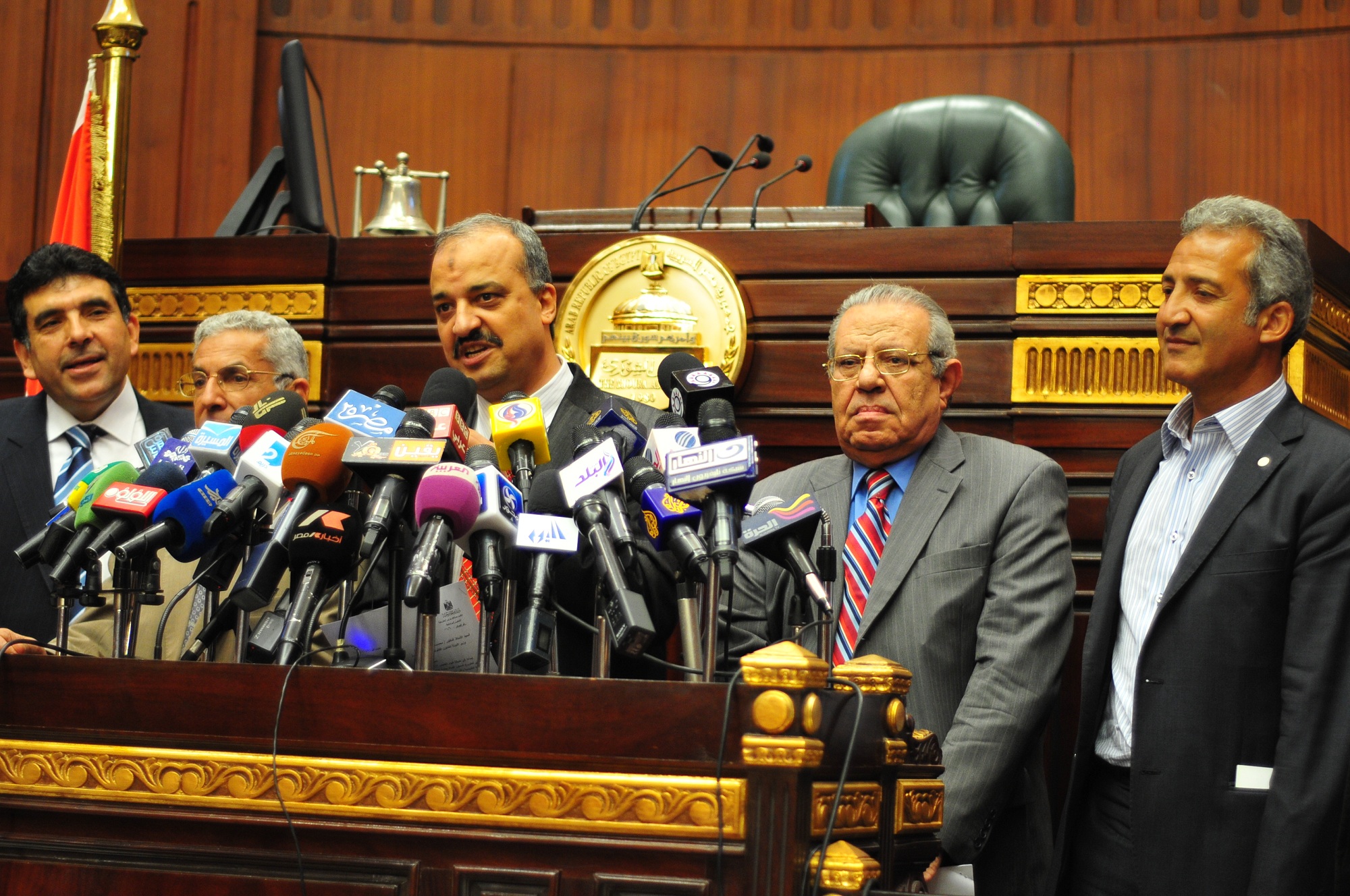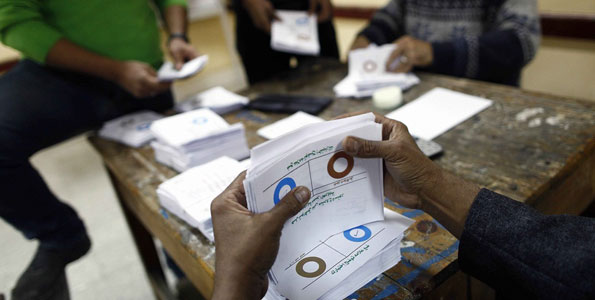
The system of governance the Constituent Assembly claims to have adopted is one it calls a “mixed system” supposedly modelled on the semi-presidential system used by France and other republics like South Korea.
The system is meant to strike a balance between the separation of powers present in presidential systems while having a strong parliament directly influencing the formation of the government like in a parliamentary system.
The section about parliament in the draft constitution shows worrying signs of presidential interference with the legislative authority, however.
The houses of parliament have been given new names with the lower house, the People’s Assembly, being renamed the House of Representatives and the upper house, the Shura Council becoming the Senate.
The assembly opted to keep a bicameral parliament and not cancel its upper house, the Shura Council, despite widespread demands from political groups for a unicameral parliament.
Long seen as inefficient, unnecessary and a waste of resources, the Shura Council, now the Senate, will remain in the constitution. The assembly justifies this by granting it much more legislative and oversight powers than it had in the previous constitution.
In the 1971 constitution the lower house was the chamber responsible with initiating legislation while the upper house, introduced by a 1980 constitutional amendment, only had the power to uphold or turn down draft bills.
Article 99 of the draft constitution allows the president, cabinet members or any member of either houses of parliament to propose draft bills, while Article 107 stipulates that any legislation initiated by one of the houses of parliament has to be approved by the other house.
In case of legislative dispute, a 20-member committee with 10 members from each house will be formed with the objective of vetting the disputed clauses and attempting to reach a compromise.
If that fails then according to Article 108 a joint session of parliament is to be held and the law will be voted on by both houses without debate, with the outcome to be decided by an outright majority.
These provisions can be seen as giving the upper house too much power compared to the House of Representatives and may lead to cases of legislative dispute.
Article 130 specifies that the upper house is to be composed of at least 150 members, a quarter of whom are to be appointed by the president from the following categories: former prime ministers, deputy prime ministers and ministers; former speakers of parliamentary chambers and former members of parliament who have served for at least two terms; professors at universities or scientific research centres; spiritual leaders and religious figures; former judges; former ambassadors; former military and police officers of the rank of major general or higher; and high ranking civil servants in the state administrative apparatus. Former presidents who took office after the 25 January 2011 revolution are to be designated permanent members of the upper house of parliament.
Giving the upper house of parliament legislative authority equal to that of the lower and then stipulating that the president is to select a quarter of its members can be seen as a violation of the principle of legislative independence from the executive branch.
Elected members of the upper house must be Egyptian citizens enjoying full civil and political rights, have a tertiary education and be at least 40 years old. Senators will hold office for six years, with alternating elections to be held every three.
The lower house is to be composed of no less than 350 directly elected members. Representatives must be Egyptian citizens, enjoying full civil and political rights, have a primary education and be at least 25 years old.
The constitution left the system of election up to the law instead of including a specific electoral system. The term of office for representatives will be five years and elections are to be held 60 days before the previous term ends.
Article 115 specifies that the lower house’s main duties are to approve key policies, the social and economic development plan, the budget, and to exercise oversight over the executive branch in addition to its legislative duties.
The government will present the budget at least 90 days before the beginning of the fiscal year and the lower house will vote on it section by section. It will be able introduce amendments to the budget, but will have to consult with the government to increase spending.
Article 126 requires ministers to answer questions put to them by representatives. The following article grants the lower house the right to a vote of no confidence. If the lower house carries a vote of no confidence in a minister that minister must resign and if it passes a no confidence vote against the prime minister the government must resign.
The president has the ability to dissolve the lower house, only in cases of “extreme necessity” through a nationwide referendum based upon the government’s request and after consultation with the speakers of both houses.
In such a case, the lower house’s activities are to be frozen and a referendum held within 20 days. If the referendum votes for the dissolution of the lower house, new elections are to be held within 30 days of the referendum results with a new lower house to be session within 10 days after the elections.
If the time period for holding the referendum or new elections passes without them being carried out, the lower house is to reconvene by law. The lower house may not be dissolved during the first year of its term.
Article 133 specifies that in case the lower house is dissolved, the upper house assumes all legislative duties that are common between both chambers. The laws passed by the upper house during the lower house’s dissolution are to be presented to the lower house for approval as soon as it is back in session.



